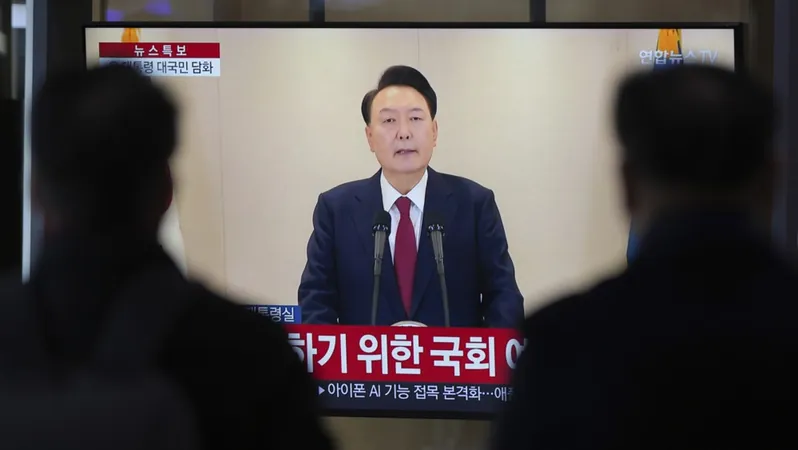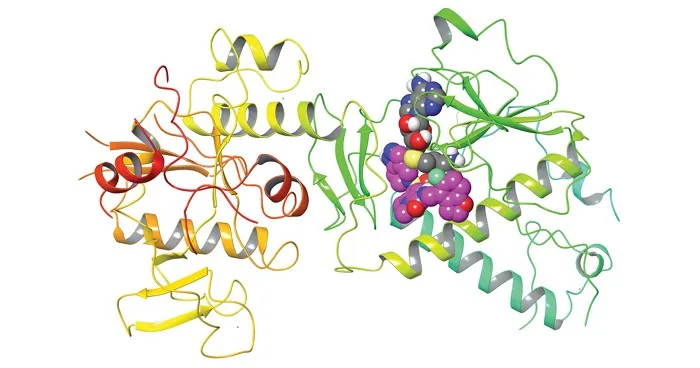
South Korea's President Yoon Faces Impeachment Vote: Will History Repeat Itself?
2024-12-13
Author: John Tan
South Korea's Political Landscape on Edge
South Korea's political landscape is once again on the edge as the National Assembly gears up for a critical impeachment vote against President Yoon Suk Yeol this Saturday, December 14. Analysts predict that the chances of successfully impeaching Yoon are significantly bolstered, particularly after key members of his own party, the ruling People Power Party (PPP), broke ranks to support the motion.
Recent Developments in Impeachment Vote
Just last week, Yoon narrowly escaped impeachment when the majority of the PPP, including party leader Han Dong-hoon, abstained from voting. However, in a surprising turn of events following a defiant televised address from Yoon where he vowed to "fight to the end," Han has since rallied for the impeachment.
Controversies Surrounding Yoon's Presidency
Yoon's presidency has been marred by controversy ever since he attempted to declare martial law during civil unrest, ultimately retracting the decision within hours after a parliamentary vote. The president’s grappling with a constitutional crisis has incited public protests and intensified demands for his resignation.
Political Analysts Weigh In
Political analyst Mason Richey from Hankuk University has likened the current situation to a game of political roulette, stating, "We're looking at an 80% chance that impeachment succeeds—potentially even more." However, he cautioned that shifts in party loyalty are unpredictable, especially given the turbulence since the martial law controversy began.
Voting Requirements and Current Support
For the impeachment motion to pass, a two-thirds majority is required, equating to at least 200 votes in the 300-seat National Assembly. Currently, the opposition parties hold 192 seats and will need a minimum of eight votes from the PPP to achieve this majority. As of now, seven PPP members have indicated support for the impeachment, and there are speculations that others may also join the cause.
Shifts in Party Loyalty
The question on many minds is, why the sudden change among PPP members? Karl Friedhoff, a fellow for Asia Studies at the Chicago Council on Global Affairs, suggests that Yoon's position seems untenable, leaving impeachment as the only viable alternative to his continued presidency. Days before the impending vote, the PPP had even discussed a potential roadmap for Yoon's early departure, which would allow the party leadership to manage the government in his stead.
Party Strategy and Opposition Threats
Friedhoff emphasized that Yoon's recent refusal to resign or capitulate has likely incensed party members, pushing them toward a more unified stance on impeachment. He also highlighted that delaying Yoon's resignation might serve the party's broader goal of extending their political influence and keeping opposition leader Lee Jae-myung at bay, who could otherwise run in a snap election should Yoon step down too soon.
Implications of Impeachment
Should the impeachment motion succeed and be passed to the Constitutional Court, analysts predict a prolonged process. The court, requiring a quorum of seven justices to deliver a verdict, could face delays given its current composition of six. If successful, however, an election would need to be organized within 60 days, potentially setting the stage for significant shifts in South Korea's political arena in mid-2024.
Conclusion
The stakes are high. With the possibility of both an impeachment and subsequent election looming, the future of Yoon's presidency—and the direction of South Korean politics—hangs precariously in the balance. Will Yoon manage to retain his power, or will he be the latest in a long line of leaders to face the consequences of political upheaval? The nation watches with bated breath as the clock ticks down to the crucial vote.




 Brasil (PT)
Brasil (PT)
 Canada (EN)
Canada (EN)
 Chile (ES)
Chile (ES)
 España (ES)
España (ES)
 France (FR)
France (FR)
 Hong Kong (EN)
Hong Kong (EN)
 Italia (IT)
Italia (IT)
 日本 (JA)
日本 (JA)
 Magyarország (HU)
Magyarország (HU)
 Norge (NO)
Norge (NO)
 Polska (PL)
Polska (PL)
 Schweiz (DE)
Schweiz (DE)
 Singapore (EN)
Singapore (EN)
 Sverige (SV)
Sverige (SV)
 Suomi (FI)
Suomi (FI)
 Türkiye (TR)
Türkiye (TR)